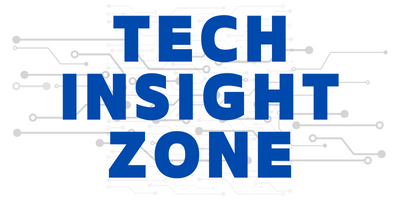On 10th January 2024, ChargePoint, a prominent provider of electric vehicle charging solutions, announced a strategic reorganization. This included a reduction of approximately 12% of their global workforce. However, the company did not disclose the exact number of employees who would be affected by this layoff.
According to their annual report on January 31st, 2023, the company had around 1,650 employees worldwide and based on this figure, it can be estimated that around 198 people would be impacted by the layoff decision.
This decision came after significant changes in the company’s executive team because of a major quarterly revenue shortfall.
ChargePoint’s revenue for Q3 of fiscal 2024 was projected to be between $108 million to $113 million, a significant drop from the previous expectation of $150 million to $165 million.
This shortfall was attributed to a confluence of factors, including weakening business conditions, macroeconomic conditions, vehicle delivery delays, slowing growth in the EV market, and challenges in EV charging network buildouts.
In response to these challenges, CEO Pasquale Romano was replaced by Rick Wilmer, the former Chief Operating Officer. Despite stepping down, Romano stayed on as an advisor to ensure a smooth transition.
In another major shift, the Chief Financial Officer, Rex Jackson, left the company. He was temporarily replaced by Mansi Khetani, ChargePoint’s senior VP of financial planning and analysis.
After that, the newly formed leadership decided to steer the company toward financial stability and operational efficiency.
This involved making the difficult decision of reducing the workforce by approximately 12%. This decision was part of a broader strategy to enhance the company’s financial performance and ensure its long-term growth.
The question that naturally arises is: how will ChargePoint manage the workload previously handled by the laid-off employees?
The Strategy Behind This Layoff
It’s crucial to understand that ChargePoint’s decision to lay off employees wasn’t an isolated incident. The company had previously announced a 10% reduction in staff in September 2023 due to weakening business conditions. This was a clear sign of the increasing pressures the company was facing.
However, the situation didn’t improve as anticipated, leading to a more substantial restructuring and layoffs in January 2024.
Despite these challenges, ChargePoint remained committed to its mission and continued to deploy new technologies to enhance the reliability of EV charging stations. Under the new leadership of CEO Rick Wilmer, the company focused on improving operational efficiency and financial stability.
The restructuring is expected to result in approximately $14 million in charges, including around $10 million in severance and related expenses, and approximately $4 million in facility-related expenses. And the company anticipates saving around $33 million in annual operating expenses as a result of this restructuring.
With nearly $397 million in liquid assets and restricted cash, along with an untouched revolving credit facility of $150 million, ChargePoint has the resources to adapt and thrive in the evolving EV market.
The company’s unwavering commitment to achieving a positive non-GAAP adjusted EBITDA by the end of 2024 reflects their confidence in the strategic reorganization and the potential of technological advancements to compensate for the reduced manpower.
ChargePoint is likely to leverage advancements in technology, particularly artificial intelligence (AI) tools, to maintain operational efficiency with a reduced workforce. The company is deploying new networking, machine learning, and proactive monitoring technologies that aim to boost EV charging station reliability to nearly 100%.
Rick Wilmer, the new President and Chief Executive Officer, stated that after a thorough review of their business strategy and product roadmap, they are heightening their focus on execution, operational excellence, and improved efficiencies while continuing with their industry-leading innovation.
Post-Layoff Developments
Following the layoffs, ChargePoint has been actively pursuing partnerships and collaborations to strengthen its position in the EV market:
- On January 30, 2024, ChargePoint released new data that illustrates the growing demand for EV charging as passenger and commercial fleet EV sales continue to increase. The data shows that EV charging has gone from a perk to a necessity for businesses, their employees, and their customers.
- On February 20, 2024, ChargePoint and AcBel Polytech Inc., a leading power supply manufacturer under Kinpo Group, announced an agreement to jointly develop EV charging solutions. This partnership will bolster ChargePoint’s research and development capabilities, enabling it to bring new products to market faster and at a lower cost.
- On March 11, 2024, ChargePoint and GATE launched a collaboration to simplify the fleet management and charging of GATE’s unique commercial EV rental offerings. This collaboration represents a new segment and a new revenue stream for one of ChargePoint’s most innovative products.
- On April 3, 2024, ChargePoint announced a new partnership with Jumptech, an electrification installation management platform. The partnership aims to deliver a seamless home charger installation experience for drivers of fleet vehicles whose charging needs have been entrusted to ChargePoint. This partnership aims to reduce the average time from charger order to installation, thanks to a standardized process and dedicated tools.
These developments indicate that ChargePoint is not only surviving but also thriving in the face of adversity. The company’s strategic reorganization and subsequent actions demonstrate a clear vision for the future and a commitment to sustainable growth.
However, only time will tell whether they can achieve this goal without the manpower.
But with this layoff, 2024 has seen some of the most significant workforce reductions in the tech industry. Following ChargePoint’s path, Sony also announced its own layoff notice in February.
Sony PlayStation Layoffs
Sony Interactive Entertainment didn’t stay far behind. In February 2024, they announced a significant reduction in their workforce. This decision affected their PlayStation unit, resulting in the layoff of about 8% of their global workforce (about 900 employees).
Sony’s decision was part of a larger execution plan aimed at reducing areas of overlap within the organization. This move came after Sony had cut its sales forecast for its flagship PlayStation 5 console due to lower demand.
Similar to ChargePoint, Sony was faced with the challenge of managing the workload previously handled by the laid-off employees. It’s likely that Sony also turned to technology, particularly AI tools, to automate certain tasks and maintain operational efficiency with a smaller workforce.
These layoffs at ChargePoint and Sony marked the beginning of a significant shift in the job market in 2024. The reliance on technology and AI tools to maintain productivity with fewer employees is a trend that’s likely to continue.
The Changing Job Market
As we move forward, it’s clear that the ability to adapt to these changes will be crucial for job security. Only time will tell how these companies and their employees adapt to these changes.
But one thing is certain – the landscape of the job market is changing, and those who can adapt and upskill will be best positioned to navigate these changes.
It is predicted that by 2027, 44% of workers’ fundamental skills will be disrupted by businesses.
However, it’s not all doom and gloom. These changes also present opportunities. For instance, the rise of AI and automation could lead to the creation of new jobs that we can’t even imagine today.
Similarly, the shift towards remote work could lead to a more flexible and balanced work-life for many people.
So, in the face of these changes, it’s crucial for individuals to adapt and equip themselves with the necessary skills to secure their jobs.
Here are some strategies:
How to Secure Your Job: 5 Proven Tips
a. Future-Proof Your Skills:
The tech industry is a prime example of how skills can quickly become outdated. Regularly assess in-demand skills within your field. Take online courses, attend workshops, or pursue certifications to stay relevant.
For instance, if you’re a software developer and notice many job postings require Rust programming, take a course and build a project using Rust.
b. Become a Niche Authority:
Don’t be a jack-of-all-trades, master of none. Identify a trending area within your field and delve deep into it. Stay updated on the latest developments and become a go-to resource for your colleagues.
For example, if you’re a digital marketer and see a rise in TikTok advertising, immerse yourself in learning its strategies. Volunteer to lead a TikTok advertising initiative at your company, showcasing your expertise and potentially boosting your company’s marketing efforts.
c. Network Like a Pro:
Building strong professional relationships strengthens your personal brand and opens doors to new opportunities. Attend industry meetups, connect with professionals on LinkedIn, or join online communities.
If you’re a data scientist, consider attending data science meetups or participating in Kaggle competitions to meet like-minded individuals. You can also offer to mentor junior data scientists, solidifying your own understanding of the field and establishing yourself as an expert.
f. Embrace Technology as Your Ally:
Don’t fear automation; leverage it to your advantage. Identify digital tools and platforms that can streamline your workflow and boost your efficiency.
For instance, if you’re a project manager, master project management tools like Jira or Asana. Demonstrating your ability to manage projects smoothly using these tools can make you indispensable to your team.
e. Become a Data-Driven Performer:
Quantify your contributions to showcase your value. Track relevant metrics related to your work. In sales, for example, track how many client interactions lead to sales.
Experiment with different sales techniques and analyze their impact on your numbers. This data-driven approach helps you identify the most effective strategies, making you a more valuable asset to your company.
By incorporating these ideas and the points we discussed earlier, you can transform yourself from a replaceable cog in the machine to a vital, dynamic asset that any company would be lucky to have.
Final Words
The layoffs at ChargePoint and Sony PlayStation in 2024 marked a significant shift in the job market. The increasing reliance on technology and AI tools to maintain productivity with fewer employees is a trend that’s likely to continue.
However, these changes also bring new opportunities. By staying adaptable, continually learning, and embracing technology, individuals can navigate these changes and secure their jobs.
The job market landscape is changing, and those who can adapt and upskill will be best positioned to navigate these changes. As we move forward, it’s clear that the ability to adapt to these changes will be crucial for job security.
The future of work may be uncertain, but with the right skills and mindset, individuals can prepare themselves for whatever comes next.







